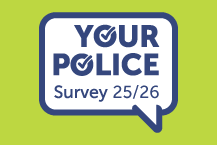Rare white-tailed sea eagle poisoned
Published 27 July 2020
Police Scotland has today confirmed that a rare white-tailed sea eagle found dead earlier this year was poisoned.
The bird of prey was recovered from Donside, Aberdeenshire, in April. A post mortem has now established it died as a result of pesticide poisoning. It had been satellite tagged.
The death is being treated as suspicious. An investigation is ongoing and Police Scotland is appealing for information to help identify those responsible.
White-tailed sea eagles were re-introduced into Scotland in the 1970s after becoming extinct in the UK in the early 1900s. There are now over 150 breeding pairs in Scotland. Police Inspector Sheila McDerment, who chairs the North East Partnership Against Wildlife Crime, said:
“As well as being illegal, poisoning is a cruel way to kill a bird. It also puts the lives of other creatures and plants at risk and impacts negatively on our environment.
“This incident is particularly upsetting because these rare and beautiful birds had been re-introduced to Scotland after being extinct throughout the UK.
“Raptor persecution is one of six priorities set by the UK National Wildlife Crime Unit. In the North East we work closely with a number of partners to tackle wildlife crime. Members of the public are our eyes and ears. I appeal to anyone out there who may hold any information about this incident to help us bring the offender to justice by coming forward and telling us what they know.”
Ian Thomson, RSPB Scotland's Head of Investigations said: "The news that this bird has been illegally poisoned is appalling. This crime would never have come to light had the bird not been fitted with a satellite tag, and the killing of this young eagle can be added to a litany of raptor persecution incidents in recent years, including previous poisonings and multiple disappearances of similarly-tagged birds of prey. Poisoning is vicious and indiscriminate and we join with Police Scotland in appealing for information.”
Detective Chief Superintendent Gary Cunningham, Wildlife Crime lead for Police Scotland, said:
“Scotland’s rich, rare and diverse wildlife and landscapes are among its biggest attractions. We cannot allow the indiscriminate use of poisons and pesticides to threaten our natural heritage. “Police Scotland, working with our key partners, is committed to protecting our wildlife habitats and to bringing those who seek to destroy or harm it, to justice.”
Please contact Police Scotland on 101 if you have information about this crime, quoting crime reference number CF0160960720. You can also report information anonymously by contacting Crimestoppers on 0800 555 111.






